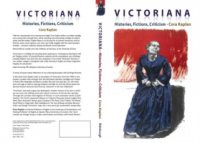A series of astute critical reflections on our enduring fascination with all things Victorian. In this book Cora Kaplan looks at the politics of Victorians from the 1970s to the present, a politics that emerges from the alternation between nostalgia and critique in fiction, film, biography and literary studies. She asks how Jane Eyre can still evoke tears and rage, as well as inspiring imitation and high art, and why Henry James has become fiction's favourite late Victorian character in the new millennium? Victorians, the book argues, has developed a modern history of its own in which we can trace the shifting social and cultural concerns of the last few decades. Through the constant interrogation of history in such innovative works as John Fowles's The French Lieutenant's Woman, A.S. Byatt's Possession, David Lodge's Nice Work, Peter Ackroyd's Dickens, Jane Campion's The Piano, Colm Toibin's The Master, Sarah Waters's Fingersmith, Alan Hollinghurst's The Line of Beauty and Julian Barnes's Arthur and George, 'Victoriana' maps out a very particular postmodern temporality.

